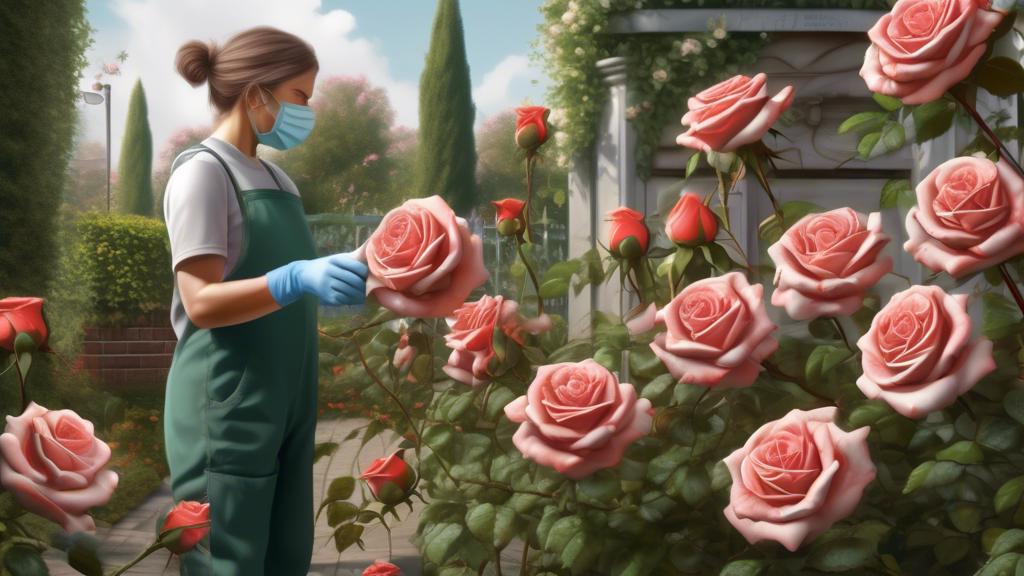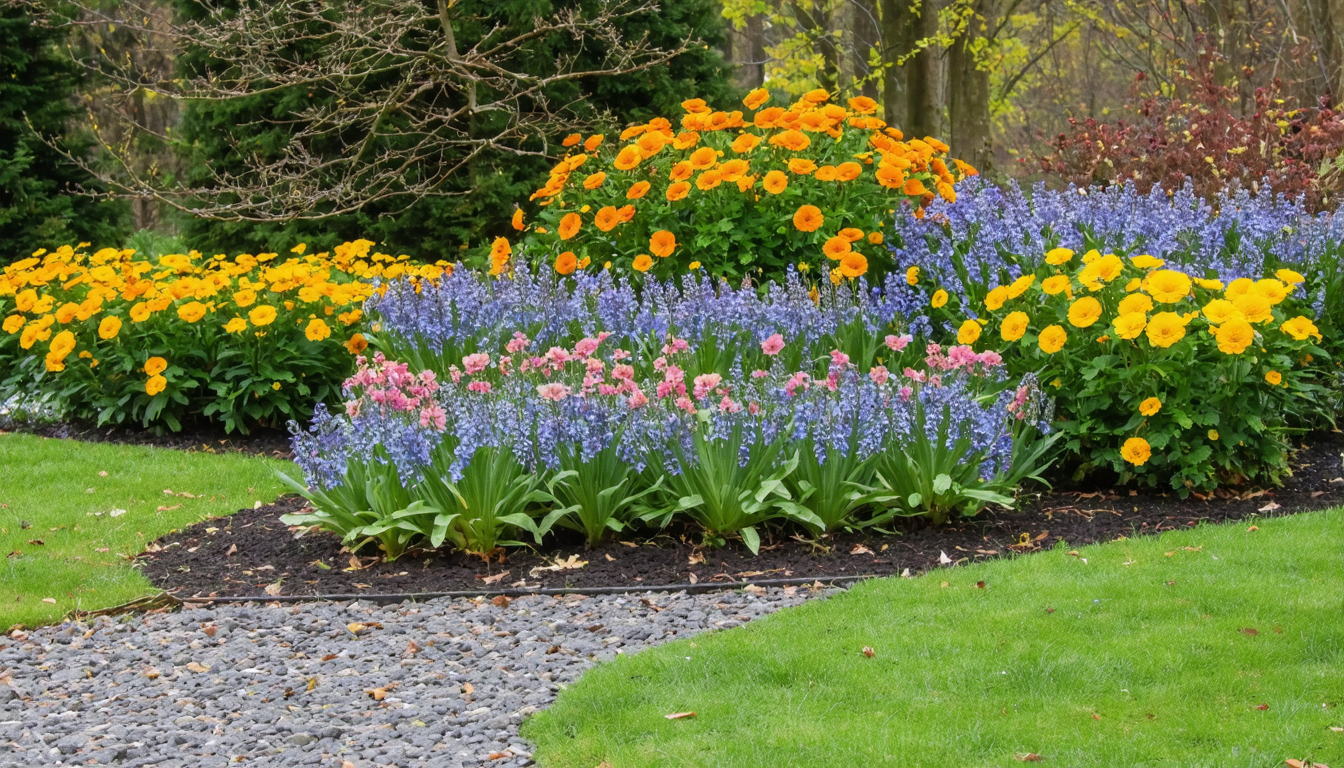
Understanding the Viral Threat to Your Roses
What Are Rose Viruses?
Rose viruses are microscopic pathogens that invade the plant’s cells, disrupting normal growth and function. Common culprits include the devastating Rose Rosette Virus (RRV), Arabis Mosaic Virus, and Prunus Necrotic Ringspot Virus. Unlike fungal or bacterial issues, these are systemic infections that cannot be cured once established.
Why There’s No Cure: The Science Behind the Directive
Plant viruses work by integrating their genetic material into the host’s cells, effectively hijacking the plant’s own systems to replicate. There are no chemical treatments, like fungicides or antibiotics, that can seek out and destroy a virus without also destroying the plant itself. The plant’s vascular system becomes a permanent carrier.
The Domino Effect: How One Sick Rose Can Destroy Your Garden
A single infected rose acts as a reservoir for the virus, which can then be spread to healthy plants through various vectors:
- Eriophyid Mites: The primary vector for the deadly Rose Rosette Virus.
- Aphids: Can transmit many other types of plant viruses.
- Contaminated Tools: Pruning shears or shovels can mechanically transfer the virus from plant to plant.
- Grafting: Using infected budwood or rootstock will guarantee a new, diseased plant.
Recognizing the Symptoms of a Doomed Rose
The Tell-Tale Signs You Can’t Ignore
Early and accurate identification is critical. Look for these hallmark symptoms:
- Excessive, Reddish Thorniness: Canes develop an unusual abundance of thin, pliable, and often red-tinged thorns. This is a classic sign of RRV.
- Distorted and Discolored Growth: Leaves may appear stunted, crinkled, or display mosaic patterns of yellow and green.
- Witches’ Brooms: A dense, brush-like cluster of shoots originating from a single point.
- Deformed Buds and Flowers: Buds may abort, or flowers may be distorted, discolored, and fail to open properly.
The Emotional and Financial Cost of Inaction
Holding onto an infected plant is a losing battle with significant consequences:
- Wasted Resources: You invest time, water, fertilizer, and hope into a plant with a terminal diagnosis.
- Garden-Wide Infestation: The virus will almost certainly spread, jeopardizing your entire rose collection and other susceptible plants.
- Irreversible Loss: The emotional toll of watching a prized, potentially expensive rose slowly succumb is immense.
The Unavoidable Conclusion: Elimination is the Only Answer
Why “Roses infected by this virus must be eliminated” is a Non-Negotiable Rule
This is not a suggestion but a fundamental principle of plant pathology endorsed by university extensions and agricultural agencies worldwide. It is the only responsible action to protect the broader garden ecosystem.
The Correct Elimination Protocol: Do It Safely
Follow these steps meticulously to prevent further spread:
- Positive Identification: When in doubt, send a sample to a plant disease diagnostic clinic for confirmation.
- Careful Removal: Place a large garbage bag over the entire plant before digging or cutting to trap any mites or aphids. Dig out the entire root system.
- Proper Disposal: Do not compost. Seal the bagged plant and dispose of it with your household trash. Burning is an option only if permitted by local ordinances.
- Tool Sanitation: Immediately after removal, disinfect all tools (shears, shovels) that touched the plant. A 10% bleach solution or 70% isopropyl alcohol are effective.
Comparison: Virus vs. Other Rose Problems
It’s easy to mistake viral symptoms for other common rose ailments. This comparison clarifies the critical differences.
| Problem Type | Treatable? | Key Differentiating Symptom | Action Required |
|---|---|---|---|
| Viral Infection (e.g., RRV) | No | Excessive reddish thorniness, witches’ brooms | Immediate removal and destruction |
| Fungal Disease (e.g., Black Spot) | Yes | Black or brown spots on leaves, leaves yellow and drop | Apply fungicide, improve air circulation |
| Nutrient Deficiency (e.g., Iron) | Yes | Yellowing between leaf veins while veins remain green | Amend soil with correct nutrient |
| Pest Damage (e.g., Aphids) | Yes | Visible insects, sticky honeydew, distorted new growth | Apply insecticidal soap or hose off pests |
Frequently Asked Questions (FAQs)
Is there *any* treatment at all for a rose with a virus?
No. There are no sprays, soil drenches, or injections that can cure a systemic plant virus. Providing extra water or fertilizer is merely “supportive care” that temporarily masks the decline while the virus continues to replicate and spread.
Can I take a cutting from a sick rose to try and save it?
Absolutely not. The virus is present in every cell of the plant, including the stems you would use for a cutting. Propagating from an infected plant guarantees you are creating a new, infected plant, effectively cloning the disease.
How long should I wait before replanting a rose in the same spot?
It is advisable to wait at least one full growing season. The unique insight here is that most rose viruses do not survive long-term in the soil on their own. The primary reason for waiting is to ensure that any small, leftover root fragments from the infected plant—which can still harbor the live virus—have completely decomposed.
A Unique Insight: The Silver Lining and Moving Forward
The One Thing Most Gardeners Don’t Know: Rootstock Can Be the Culprit
Here is a critical piece of information many gardeners are unaware of: Many modern roses are grafted, meaning the desirable rose variety (the scion) is attached to a hardy, disease-resistant rootstock. If a virus is introduced through grafting or infects the scion, it may not have spread to the rootstock. This is why, after removing a seemingly dead grafted rose, you might see healthy canes sprouting from the base. These are not your original rose coming back to life; they are canes from the virus-free rootstock, which is often a different, less desirable species like Rosa multiflora. You should still remove these canes, as they will not produce the rose you originally planted.
Turning a Loss into an Opportunity
While losing a rose is difficult, it creates a chance to make a positive change:
- Renovate the Soil: Remove any old mulch, work in generous amounts of compost, and consider a soil test.
- Select a Resistant Variety: Use this as an opportunity to research and plant a modern, disease-resistant rose variety or an “own-root” rose, which eliminates the rootstock confusion.
- Practice Crop Rotation: Consider planting a non-rose species in that spot for a year or two to break any potential pest or disease cycles.






